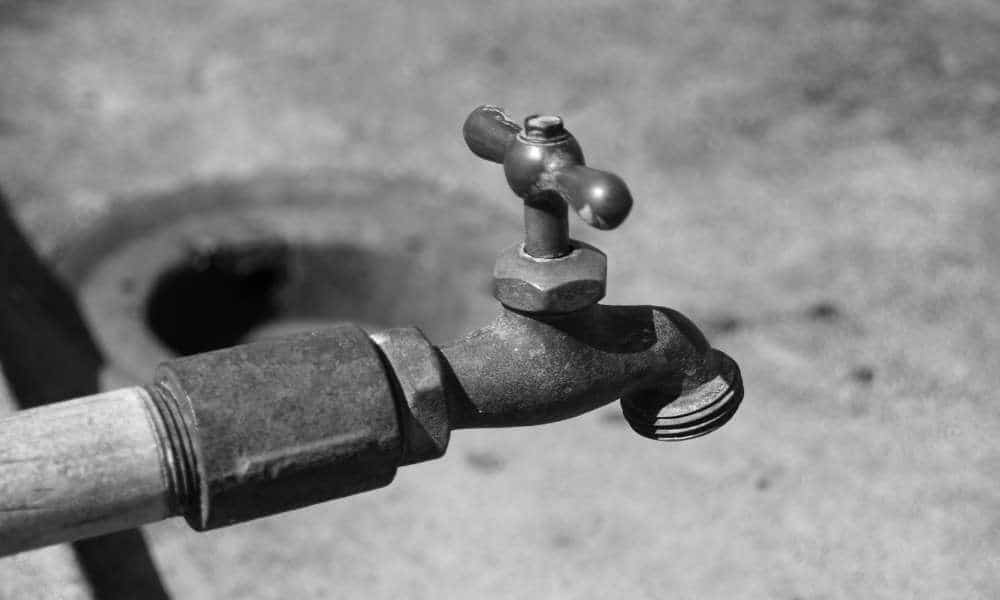MSN in Nursing Education: Complete Career Guide and Opportunities
Understand the MSN in nursing education
A master of science in nursing (MSN) with a focus on nursing education open doors to numerous career opportunities in academia, healthcare institutions, and professional development. This advanced degree prepare register nurses to become educators, mentors, and leaders in the nursing profession.
The MSN in nursing education combine clinical expertise with pedagogical skills, create professionals who can bridge the gap between theoretical knowledge and practical application. Graduates develop competencies in curriculum design, assessment strategies, educational technology, and adult learning principles.
Academic teaching opportunities
One of the primary career paths for MSN nursing education graduates is taught in academic institutions. These professionals can work in various educational settings, each offer unique rewards and challenges.
Community college instruction
Many community colleges require nursing instructors to hold a mMSNdegree. These positions involve teach foundational nursing courses, supervise clinical rotations, and mentor students enter the healthcare field. Community college instructors oftentimes work with diverse student populations and play a crucial role in address nursing shortages at the local level.
University faculty positions
Universities and four year colleges offer opportunities for MSN prepare educators to teach undergraduate nursing students. These roles typically involve classroom instruction, laboratory supervision, and clinical teaching. Faculty members may besides participate in curriculum development, student advising, and academic committee work.

Source: dreamstime.com
Simulation laboratory coordination
Modern nursing education rely hard on simulation base learning. MSN educate professionals can specialize in manage simulation laboratories, develop realistic scenarios, and training students use high fidelity mannequins and virtual reality systems. This role combine technical expertise with educational innovation.
Healthcare institution education roles
Hospitals and healthcare systems progressively recognize the value of MSN prepare educators in their organizations. These professionals contribute to staff development, quality improvement, and patient safety initiatives.
Staff development specialist
Healthcare institutions employ nursing education specialists to design and implement continue education programs for their nursing staff. These professionals assess learning needs, develop training materials, and evaluate program effectiveness. They ensure that nurses maintain current competencies and stay update with evidence base practices.
Clinical nurse educator
Clinical nurse educators work direct in patient care areas, provide real time education and support to nursing staff. They conduct bedside teaching, facilitate case discussions, and help implement new policies or procedures. This role combine clinical expertise with educational skills to improve patient outcomes.
Orientation program coordinator
New graduate nurses and experienced nurses transition to new specialties require comprehensive orientation programs. MSN prepare educators design and oversee these programs, ensure that new staff members develop the necessary skills and confidence to provide safe, effective patient care.
Professional development and consulting
The expertise gain through a mMSNin nursing education extend beyond traditional employment settings, create opportunities for independent practice and consulting work.
Educational consulting
Healthcare organizations, educational institutions, and professional associations oftentimes seek external consultants to evaluate exist programs, develop new curricula, or implement educational innovations. MSN prepare educators can establish consulting practices, offer specialized expertise to multiple clients.

Source: britannica.com
Continuing education provider
Many states require nurses to complete continue education units to maintain their licenses. MSN educate professionals can develop and deliver continue education programs, either severally or through establish providers. This work can be specially rewarding for those passionate about specific clinical areas or emerge healthcare trends.
Professional writing and content development
The combination of clinical knowledge and educational expertise make MSN graduate valuable contributors to professional publications, online learning platforms, and educational resource development. They can write textbooks, create online courses, or develop educational materials for healthcare organizations.
Leadership and administrative roles
A mMSNin nursing education provide a strong foundation for leadership positions within healthcare and educational organizations.
Nursing program director
Educational institutions require experienced leaders to oversee their nursing programs. MSN prepare professionals can advance to director or dean positions, where they manage faculty, oversee curriculum development, and ensure program accreditation compliance.
Professional development manager
Large healthcare systems oftentimes employ managers to oversee all educational and professional development activities for nursing staff. These roles involve strategic planning, budget management, and coordination of multiple educational initiatives across the organization.
Quality improvement coordinator
The analytical and educational skills develop in MSN programs translate advantageously to quality improvement roles. These professionals use data to identify areas for improvement and develop educational interventions to enhance patient care quality and safety.
Specialized education fields
MSN nursing education graduates can focus on specific clinical areas or populations, create niche expertise that’s extremely value in the healthcare industry.
Patient education specialist
Hospitals and clinics employ specialists to develop and implement patient education programs. These professionals create materials and programs that help patients understand their conditions, medications, and self-care requirements. They may specialize in areas such as diabetes education, cardiac rehabilitation, or discharge planning.
Community health education
Public health organizations and community health centers need educators who can design programs for diverse populations. MSN prepare professionals can develop health promotion initiatives, conduct community assessments, and implement evidence base interventions to improve population health outcomes.
Specialty certification training
Many nursing specialties require additional certification beyond basic license. MsMSNducate professionals can develop and deliver certification preparation courses for specialties such as critical care, emergency nursing, or pediatric care.
Technology and innovation in nursing education
The healthcare industry continue to evolve with technological advances, create new opportunities for MSN prepare educators who embrace innovation.
E-learning development
Online education has become progressively important in nursing education. MSN graduates can specialize in develop online courses, virtual clinical experiences, and mobile learning applications. This field combine educational expertise with technology skills to create accessible, engage learning experiences.
Educational technology integration
Healthcare organizations and educational institutions need experts who can evaluate, implement, and optimize educational technologies. MSN prepare professionals can serve as bridges between clinical practice and technology, ensure that new tools enhance preferably than complicate the learning process.
Research and evidence base practice
Many MSN nursing education programs include research components, prepare graduates to contribute to the evidence base for nursing education and practice.
Educational research
MSN prepare educators can conduct research on teaching methods, learn outcomes, and educational innovations. This research contributes to the broader understanding of effective nursing education and can lead to publications and presentations at professional conferences.
Evidence base practice implementation
Healthcare organizations need professionals who can translate research findings into practice improvements. MSN educate nurses can lead evidence base practice initiatives, help organizations implement research support interventions and measure their effectiveness.
Professional growth and career advancement
A mMSNin nursing education serve as a stepping stone to further career advancement and professional recognition.
Doctoral degree preparation
Many MSN graduates choose to pursue doctoral degrees, either doctor of nursing practice (dDNP)or phPhDn nursing. The msMSNrovide excellent preparation for doctoral study and can lead to advanced practice roles, research positions, or senior academic appointments.
Professional organization leadership
MSN prepare educators oftentimes become leaders in professional nursing organizations, contribute to policy development, standard setting, and professional advocacy. These roles provide opportunities to influence the nursing profession at regional, national, and international levels.
Salary expectations and job market
The job market for MSN prepare nursing educators remain strong, drive by ongoing nursing shortages and the need for qualified instructors. Salaries vary base on location, experience, and specific role, but mostly offer competitive compensation packages.
Academic positions oftentimes provide benefits such as tenure opportunities, sabbatical leave, and flexible schedules. Healthcare institution roles may offer shift differentials, clinical ladder advancement, and opportunities for additional certification or training.
Skills development and competency building
Success in nursing education roles require ongoing skill development and competency building beyond the MSN degree.
Teaching and learning technologies
Modern nursing education rely heavy on technology, from learn management systems to virtual reality simulations. MSN prepare educators must stay current with educational technologies and understand how to integrate them efficaciously into their teaching practice.
Assessment and evaluation methods
Effective nursing educators must be skilled in various assessment methods, include traditional testing, competency base evaluation, and portfolio assessment. They need to understand how to measure learn outcomes and use assessment data to improve educational programs.
Make the most of your MSN in nursing education
To maximize career opportunities with a mMSNin nursing education, graduates should consider several strategies for professional development and career advancement.
Network within professional organizations, attend conferences, and maintain clinical competence all contribute to career success. Many successful nursing educators maintain part-time clinical practice to stay current with healthcare trends and maintain credibility with students and colleagues.
Continue education and professional development remain important throughout one’s career. Technology continue to evolve, healthcare practices change, and educational methods improve. Successful nursing educators embrace lifelong learning and adapt to change professional demands.
The MSN in nursing education open doors to diverse, reward career opportunities that combine clinical expertise with educational excellence. Whether in academic settings, healthcare institutions, or independent practice, these professionals play vital roles in prepare the next generation of nurses and advance the nursing profession.
MORE FROM getscholarships.de













